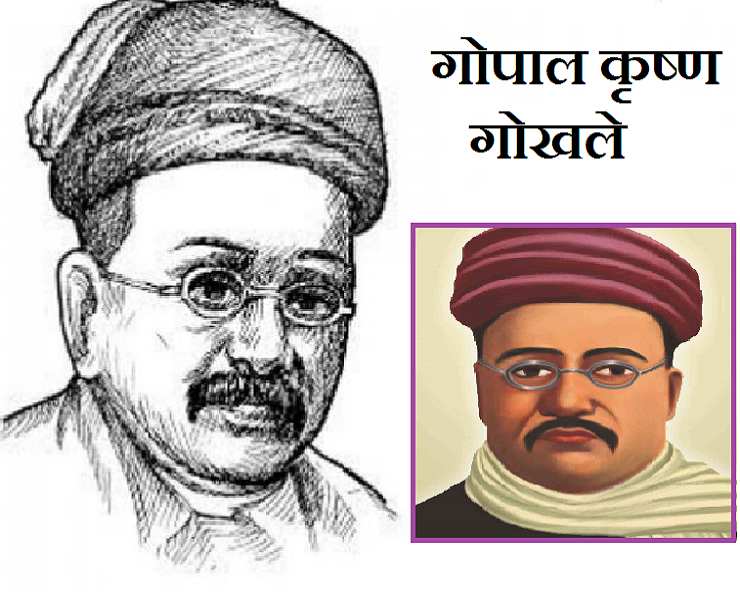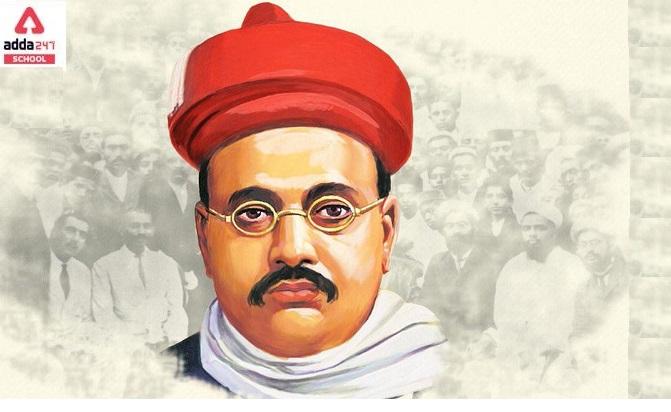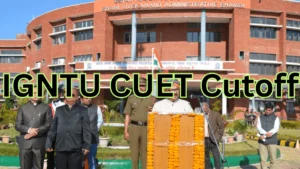Gopal Krishna Gokhale
Gopal Krishna Gokhale an Indian leader, was born on May 9, 1866. During the Indian Independence Movement, Gopal Krishna Gokhale was an Indian liberal political leader and social reformer. Gokhale was the founder of the Servants of India Society and a prominent member of the Indian National Congress. Gokhale pushed for Indian self-rule and social changes through the Society, as well as the Congress and other legislative organizations in which he served. He was the leader of the Congress party’s moderate group, which favored reforms through collaboration with existing government institutions.
Gopalakrishna Gokhale
GopalKrishna Gokhale (1866–1915) was a prominent Indian nationalist leader, social reformer, and a key figure in the early stages of India’s struggle for independence from British colonial rule. He advocated for social and political reforms while working within the framework of constitutional methods and dialogue with the British government. Here are some key aspects of GopalKrishna Gokhale’s life and contributions:
Early Life and Education: Gokhale was born on May 9, 1866, in Ratnagiri, Maharashtra, India. He hailed from a humble background and faced financial challenges in pursuing his education. Despite these difficulties, he managed to complete his education and graduated from Elphinstone College in Bombay (now Mumbai).
Social Reforms: Gokhale was deeply concerned about social issues in Indian society, particularly caste discrimination and untouchability. He was associated with social reform movements and believed that societal progress was essential for India’s overall development.
Political Career: Gokhale joined the Indian National Congress (INC) and became one of the early leaders of the organization. He was known for his moderate approach to Indian nationalism, advocating for constitutional reforms and cooperation with the British government to bring about change.
Legislative Role: He was elected to the Bombay Legislative Council in 1899 and later to the Imperial Legislative Council in 1902. In these positions, he advocated for Indian representation, civil liberties, and economic reforms. He focused on issues such as education, sanitation, and labor rights.
Support for Education: Gokhale strongly believed in the power of education and its role in transforming Indian society. He emphasized the importance of modern education and founded the Servants of India Society in 1905 to promote education and social service.
Leadership and Mentorship: Gokhale’s influence extended to younger Indian leaders, including Mahatma Gandhi. He became Gandhi’s political mentor and played a significant role in shaping Gandhi’s ideologies of nonviolence and satyagraha (civil disobedience).
Critique of British Policies: While advocating for cooperation with the British government, Gokhale was also critical of certain British policies that he believed were detrimental to India’s progress. He highlighted issues such as economic exploitation and lack of Indian representation in key administrative positions.
Death and Legacy: Gopal Krishna Gokhale passed away on February 19, 1915, at the age of 48. His contributions to Indian society, politics, and the freedom struggle left a lasting impact. He laid the foundation for the idea of constitutional agitation and peaceful negotiation, which later influenced leaders like Mahatma Gandhi in their approach to achieving India’s independence.
Gokhale’s legacy as a moderate nationalist, social reformer, and advocate of education continues to be remembered and respected in India’s history. His ideas and principles remain relevant in discussions about the strategies and approaches used by India’s early freedom fighters.
Read About: Mahatma Gandhi
Gopal Krishna Gokhale’s Contribution in Education during Indian National Movement
Gopal Krishna Gokhale was born in Kotluk village, Guhagar taluka, Ratnagiri district, Maharashtra, on May 9, 1866. Despite his family’s poverty, Gokhale’s family worked hard to ensure that he acquired an English education, which would enable him to work as a clerk or small official in the British Raj. In Kolhapur, he attended Rajaram College. Gokhale graduated from Elphinstone College in 1884, making him one of the first generations of Indians to get a university degree. The social works of Justice Mahadev Govind Ranade had a significant impact on his life. He was labeled the ‘Protege Son’ of Justice Mahadev Govind Ranade, i.e. Manas Putra. Gokhale’s education shaped his future career significantly; in addition to acquiring English, he was exposed to Western political theory and grew to appreciate theorists like John Stuart Mill and Edmund Burke.
Gokhale had two wives. When he was in his teens, he was married to Savitribai, who was suffering from an incurable illness, in 1880. In 1887, while Rishibama was still living, he married for the second time. In 1899, his second wife passed away after giving birth to two daughters. Gokhale never married again, and his children were raised by relatives.
Read About: Maharaja Ranjit Singh
Contribution of Gopal Krishna Gokhale
Gopal Krishna Gokhle chastised the government for spending a lot of money on the army, taxing cotton, and racially discriminating against Indians in high-ranking positions.
He did everything he could to persuade British statesmen in London not to split Bengal.
His tireless efforts resulted in a toll tax cut.
In India, he requested that the government to limit land revenues.
Gopal Krishna Gokhle founded the ‘Servants of India Society’ in Pune (Maharashtra) in 1905 to promote education in India. The Society established mobile libraries, established schools, and offered industry workers, night classes.
Gopal Krishna Gokhale promoted independence from the british rule with Gandhi Ji
In Mahatma Gandhi’s formative years, Gokhale was well-known to be a guru to him. On Gandhi’s invitation, Gokhale visited South Africa in 1912. Gandhi received personal mentoring from Gokhale when he returned from his efforts against the Empire in South Africa as a young barrister, including expertise and awareness of India and the challenges of average Indians. Gandhi rose to prominence as the leader of the Indian Independence Movement by 1920. Gandhi refers to Gokhale as his mentor and guide in his autobiography. Gokhale was also praised by Gandhi as a great leader and politician, describing him as “pure as crystal, delicate as a lamb, brave as a lion, chivalrous to a fault, and the most faultless guy in the political sphere.” Despite his admiration for Gokhale, Gandhi rejected Gokhale’s belief in western institutions as a way of effecting political transformation and ultimately declined to join Gokhale’s Servants of India Society.
Gopal Krishna Gokhale History
Gopal Krishna Gokhale (1866–1915) was a prominent Indian political leader, social reformer, and one of the earliest leaders of the Indian National Congress (INC) during the late 19th and early 20th centuries. He played a significant role in advocating for social and political reforms, as well as for India’s self-governance within the British colonial framework. Here’s an overview of his life and contributions:
Early Life and Education: Gopal Krishna Gokhale was born on May 9, 1866, in Kotluk village in present-day Maharashtra, India. He came from a modest background and had his initial education in a local vernacular school. However, he later attended Elphinstone College in Bombay (Mumbai), where he developed an interest in social and political issues.
Social Reforms: Gokhale was deeply committed to social reform and education. He joined the Servants of India Society in 1905, which aimed to promote civic responsibility, education, and public service. He worked to eradicate social evils like untouchability and child marriage and emphasized the importance of education as a means of empowerment.
Political Activism: Gokhale’s political career began when he joined the INC in 1889. He believed in a moderate and gradual approach to achieving India’s self-governance and sought cooperation with the British government. He aimed to create a bridge between Indians and the British rulers to promote reforms that would benefit Indians.
Role in the Legislative Council: Gokhale was elected to the Imperial Legislative Council (a precursor to the present-day Parliament of India) in 1902. He used this platform to advocate for Indian interests, especially in matters related to civil rights, education, and economic development.
Educational Initiatives: Gokhale was a strong advocate for education and believed that educated and politically aware citizens were essential for India’s progress. He supported the spread of modern education and played a crucial role in establishing institutions like the Fergusson College in Pune.
Influence on Young Leaders: Gokhale had a significant impact on the next generation of Indian leaders, including Mahatma Gandhi. Gandhi considered Gokhale his mentor and drew inspiration from his principles of nonviolent protest and constructive engagement with the British authorities.
Gokhale’s contributions to Indian society, education, and politics have earned him a respected place in Indian history as a reformer and a statesman who worked towards the welfare and progress of the Indian people.
Gopal Krishna Gokhale in Hindi
गोपाल कृष्ण गोखले एक भारतीय नेता थे, जिनका जन्म 9 मई, 1866 को हुआ था। भारतीय स्वतंत्रता आंदोलन के दौरान, गोपाल कृष्ण गोखले एक भारतीय उदारवादी राजनीतिक नेता और समाज सुधारक थे। गोखले सर्वेंट्स ऑफ इंडिया सोसाइटी के संस्थापक और भारतीय राष्ट्रीय कांग्रेस के एक प्रमुख सदस्य थे। गोखले ने सोसाइटी के साथ-साथ कांग्रेस और अन्य विधायी संगठनों के माध्यम से भारतीय स्व-शासन और सामाजिक परिवर्तन के लिए जोर दिया, जिसमें उन्होंने सेवा की। वह कांग्रेस पार्टी के उदारवादी समूह के नेता थे, जो मौजूदा सरकारी संस्थानों के सहयोग से सुधारों के पक्षधर थे।
Read About: Mother Teresa
Gopal Krishna Gokhale Photo
Gopal Krishna Gokhale Photo is given below.

Gopal Krishna Gokhale Contribution to Indian National Movement- QNAs
What caste does Gokhale belong to?
Gokhale is an Indian surname that originated in the Chitpawan community in Maharashtra’s western state.
What was Gopal Krishna Gokhale’s contribution?
Gopal Krishna Gokhale was an Indian social reformer who created a sectarian organisation to help India’s poor. In the early years of the Indian independence movement, he led the moderate nationalists.
What happened to Gopal Krishna Gokhale?
He died at the age of 49 on February 19, 1915, as a result of stress.
What exactly is the Gokhale bill?
In the Imperial Legislative Council, Gokhale submitted the Elementary Education Bill, which argued for the introduction of compulsory and free education in India.
What is Gokhale’s Bill’s significance?
In 1926, the Assam government approved the compulsory Primary Education Act. All of this was the result of Gokhale’s endeavour to make primary education in India obligatory. During British rule, his fight for compulsion was a crucial aspect of the country’s war for independence.









 [Live Updates] NTA CUET Undergraduate Re...
[Live Updates] NTA CUET Undergraduate Re...
 IGNTU CUET Cutoff 2025, Check Category W...
IGNTU CUET Cutoff 2025, Check Category W...
 CGBSE Revaluation Result 2025 Announced ...
CGBSE Revaluation Result 2025 Announced ...









